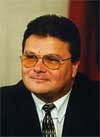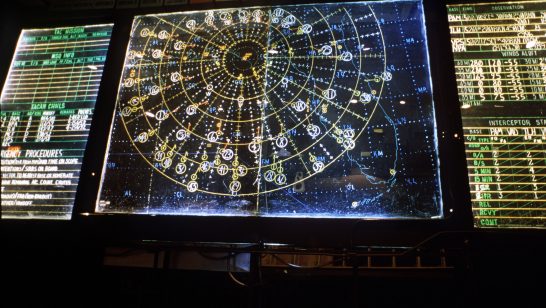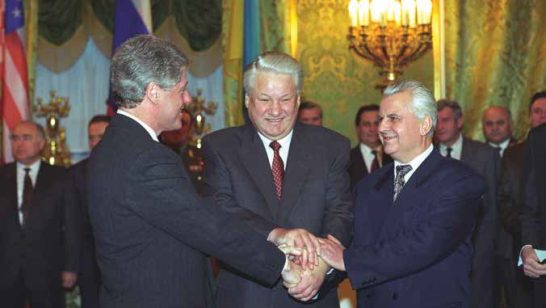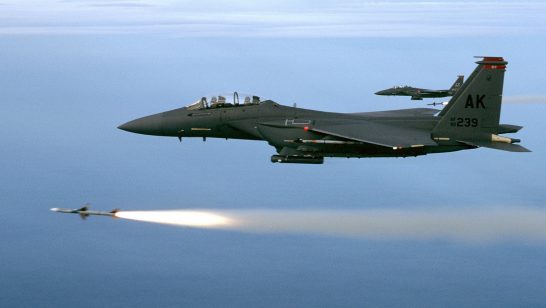
The possible agenda on cooperation with Russia, within the NATO-Russia Council framework, is wide, covering a range of issues from attempts to build mutual trust, discussion of verification mechanisms, missile defence, and more. Before commenting on NATO’s own DDPR process, due to be completed for the Chicago Summit, I want to make a few comments about this. For me the key issue before us is building trust in the NATO-Russia relationship, and the key question is not what NATO can offer in this regard but what can NATO offer that it has not already offered before? My strong conviction is also that NATO sometimes lacks consistency of position, lacks focus on the goals to be achieved, and pursues no clear long-term strategy. It ends up strategically undermining its own interests and the relationship with Russia as a result, through the pursuit of short-term, often inappropriate, fixes.
Let me turn to the history first, to set any further NATO moves in the context of what the Alliance has tried before. I would remind readers that:
• In 1991 the North Atlantic Cooperation Council was established, eventually involving all of the former communist countries of central and Eastern Europe and the former Soviet Union. Its aim was to build trust and confidence through political dialogue. Even before that, NATO had contributed by engaging in significant reductions of tactical nuclear arsenals, and had done so without the need to alter the foundations of its nuclear posture as articulated in both the 1991 and 1999 Strategic Concepts.
• In 1993, NATO continued to unilaterally reduce the number of U.S. nuclear weapons in Europe, to reduce the number of locations where they were deployed, and to reduce the number of countries hosting weapons or participating in the nuclear second strike mission. This was done regardless of Russia’s much larger inventory of non-strategic nuclear weapons;
• In 1997 the NATO-Russia Permanent Joint Council was created as a special framework for relations with Russia and at the same time NATO made the unilateral commitment to refrain from the deployment of substantial military capabilities in the territories of the newer member-states of the Alliance. In addition, we saw the famous declaration of three no‘s: namely no NATO intention, no need, and no plans to deploy nuclear weapons in the territories of the newer members.
• In 2002 came the Rome declaration which set up the NATO-Russia Council. All discussions and decisions were thereafter to be conducted on an equal footing, now among the 29 countries involved. From my vantage point in the North Atlantic Council at the time, I remember how strongly opposed many NATO allies were to the precoordination of Allied positions before going into the NATO-Russia Council discussions. However, I also remember how Russia sought to make full use of internal NATO differences to split the Alliance.
I am proud that NATO is not a supranational organization, but sometimes this turns out to be a problem. The non-existence of agreed polices on many substantial issues not only weakens the Alliance itself but causes problems in the NATO-Russia relationship. Over the years, a countless number of NATO-Russia Council working groups have been established, covering issues such as the fight against terrorism, peacekeeping, non-proliferation, arms control, theatre missile defence, search and rescue at sea, military cooperation, civil protection, scientific cooperation, and more. Frankly speaking, too much time, resources, and effort has gone in for very little results while underlying contradictions in the relationship remain.
What contradictions are these? I would answer by saying that as the Dean of the North Atlantic Council I had an opportunity to raise a question at the meeting with President Medvedev at his dacha in Sochi, during the visit of the North Atlantic Council to Russia in August last year. That question was: “Mr President, NATO considers Russia to be its future strategic partner, a point emphasised in our new Strategic Concept. In your Military Doctrine, however, the expansion of NATO is considered as the main military danger. When will Russia amend its basic security document?” There was a pause, but no answer.
After the Georgian war in August 2008, at the meeting of NATO Foreign Ministers in December of that year, the NATO-Russia relationship was effectively frozen. I will not remind readers of all the demands and requests that were put to Russia at that time. Suffice it to say that there were clear conditions to be fulfilled before NATO was willing to resume dialogue with Russia. A dialogue that was supposed to be based on the values and principles enshrined in the NATO-Russia Founding Act and in the Rome Declaration. Unfortunately not a single NATO request was implemented. In some cases the situation deteriorated, as evident by the military build-up in the occupied parts of Georgia. Russia refused to even discuss these issues.
Nevertheless, NATO has, more recently, been seeking friendlier relations with Russia. This demonstrates our inconsistency and disrespect for our own values and principles, and perhaps this partly explains why the reset exercise, led by the Americans, has not been as successful as expected.
From my perspective, NATO would do better to be consistent in its approach to Russia. When pushing the reset button, it should be careful not to also press delete, thereby removing the relevance of previous commitments and obligations. I agree that channels of communication should open, but used appropriately.
On the issue of Missile Defence there has been an inconsistency in approach since the very beginning. Before the Lisbon Summit, Russia was invited to cooperate on Territorial Missile Defence not only Theatre Missile Defence. Territorial defence should, in my view, be considered a core aspect of the Article 5 commitment and no outsourcing on this is possible. Only after some time had elapsed did clear statements come from the NATO Secretary General and individual Allies on the role of two separate systems – that NATO will defend NATO and that Russia will defend Russia. But the damage had already been done. During the Lisbon Summit President Medvedev suggested the so called Sectoral Approach to common Missile Defence, thus making this issue the litmus test for future overall cooperation between Russia, the US and NATO. I think that this situation was created partly by our own NATO inconsistency in approach.
Given the context, we should ask ourselves what needs to come next as we approach Chicago? Another unilateral concession on disarmament? Decreased reliance on nuclear weapons, whilst at the same time cutting defence budgets and spending less on conventional capabilities? Another round of false expectations that our Russian partners will follow?
In a context where some nuclear arsenals in the world are increasing, NATO cannot reduce the effectiveness of its nuclear deterrent, which ought to remain a core element of the collective defence guarantees under Article 5. It remains crucial to many Allies. The Alliance’s public nuclear posture is a key component of its deterrence capability.
Any reductions of U.S. non-strategic nuclear weapons in Europe should therefore not be unilateral and should involve Russian reciprocity. Lack of Russian transparency relating to the quantity, types of delivery systems, deployment locations, and the level of readiness of its tactical nuclear weapons is an additional factor to be taken into account.
While conducting its Deterrence and Defence Posture Review, NATO should consider the full-spectrum of capabilities to counter all kinds of threats, whether they be nuclear, conventional, missile, or asymmetric.
In all of this, it is not just numbers that are important, but combat readiness as well. In the Strategic Concept, we stressed the importance of training, exercises, and readiness to implement Article 5 commitments. We should not shy away from these areas which are NATO‘s real core business.
Dialogue with Russia is crucial in all areas and should be pursued, not just on security issues. There is no alternative to engagement, no way back to the Cold War. Stability in Europe can, and should, help to modernize Russia, particularly by allowing further investment in the energy sector and increasing trade ties. But we cannot turn our backs on international principles such as human rights or the rule of law. Our relations should be based on true, decent, consistent dialogue, based on values, mutual commitments, and gradually increased trust. They should, in other words, be based on reciprocity of efforts.
The opinions articulated above represent the views of the author(s), and do not necessarily reflect the position of the European Leadership Network or any of its members. The ELN’s aim is to encourage debates that will help develop Europe’s capacity to address the pressing foreign, defence, and security challenges of our time.
Click here for previous ELN Chicago Forum Papers.



